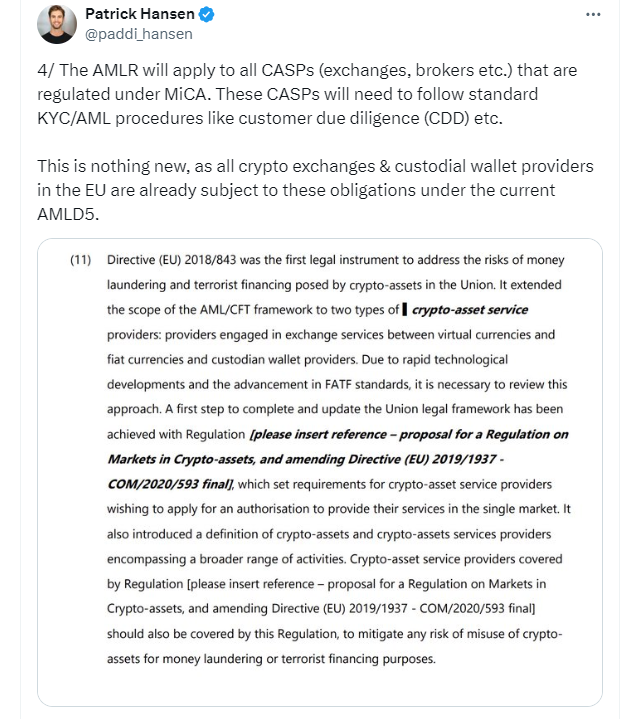European Parliament has approved new regulations imposing official status determination obligations on crypto companies to combat money laundering. The new laws aim to improve status determination measures and identity checks for clients extending to organizations like crypto asset managers. These organizations will also be required to report suspicious activities to authorities.
European Union and Crypto Legislation
Approved on April 24, this new legislation under the Crypto Asset Markets (MiCA) regulation will cover crypto asset service providers such as centralized crypto exchanges (CASPs) and other various organizations.

MiCA serves as a regulatory framework introduced by the European Union to oversee crypto assets and markets. This process was legalized in June 2023 and will fully come into effect by the end of the year. A new institution called the Anti-Money Laundering and Counter-Terrorism Financing Authority (AMLA) has been tasked with overseeing and monitoring the implementation of the new rule.
AMLA’s office will be located in Frankfurt, Germany, but the law has not been officially accepted by the Council and has not yet been published in the EU Official Journal. Circle’s EU strategy and policy director, Patrick Hansen, expressed his expectations about the outcome of the vote in a post on X. He stated that the package would officially be accepted by the EU Council and come into effect three years later.
Key Details About the Process
In another post, Hansen noted that these CASPs will need to comply with standard Know Your Customer (KYC) and Anti-Money Laundering (AML) procedures such as customer status determination. He mentioned that this requirement is not new as all crypto exchanges and custody wallet providers in the EU must comply with these regulations under existing legislation.
Hansen described the final version as a positive outcome for the crypto sector. He noted that the proposed AMLR suggested a much stricter approach than previous iterations, which would also require KYC on the personal custody creator or beneficiary.
However, he credited the industry’s efforts to advocate for and ultimately reach a consensus on a risk-based approach that offers multiple options. Last month, the majority of leading committees in the European Parliament removed the 1,000 euro limit on cryptocurrency payments from crypto wallets as part of the new AML laws.

 Türkçe
Türkçe Español
Español









